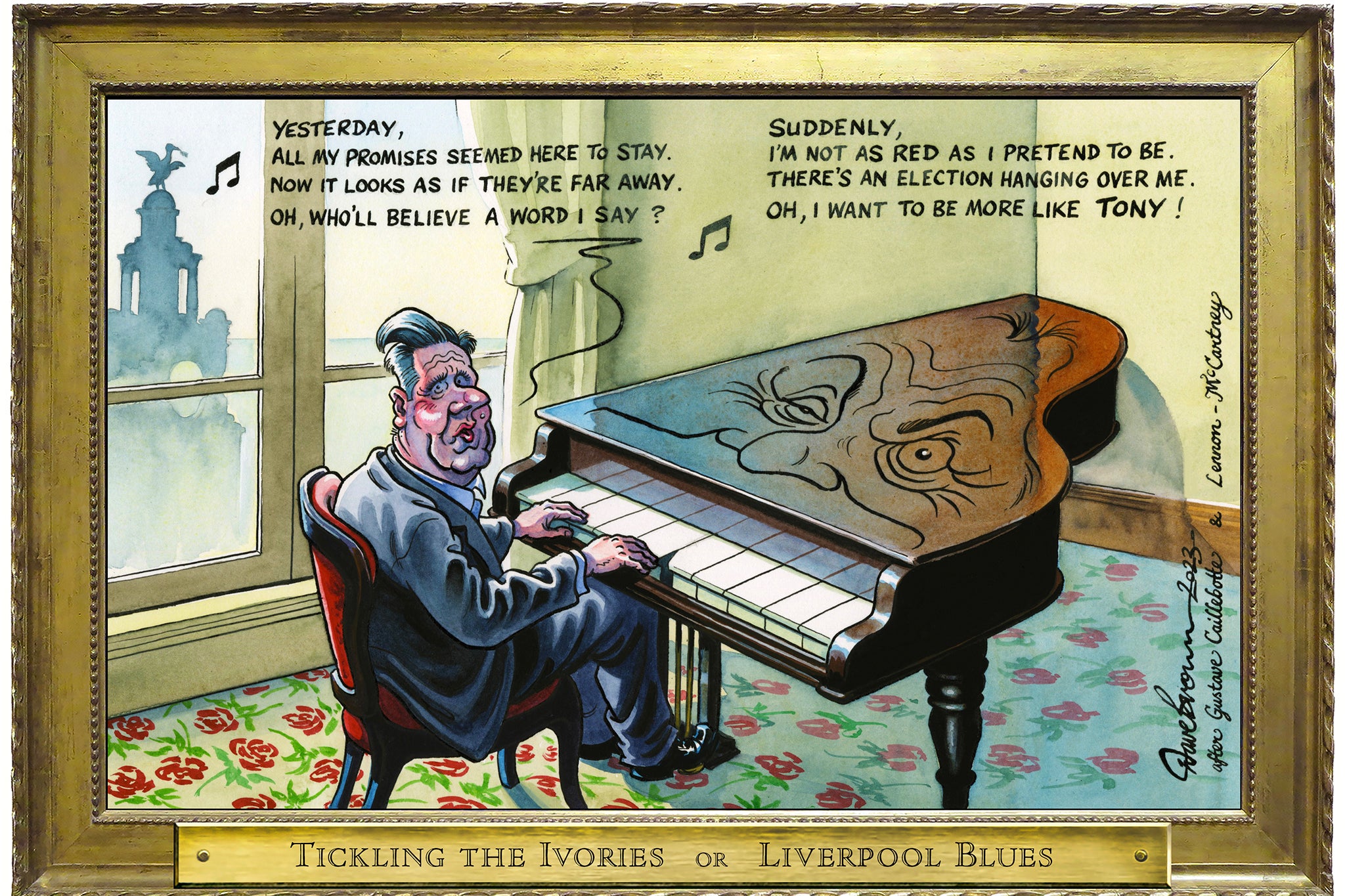The Labour Party’s elation at the prospect of a resurgence in Scotland is understandable. A few years ago, its MPs were a critically endangered species. Now they present no cause for concern. Quite the opposite, in fact.
If even half of the dramatic swing to the party from the SNP were to be replicated at a national level in Scotland at the general election, Sir Keir Starmer could look forward to a useful boost to augment his presence in the Commons. If the full performance in Rutherglen and Hamilton West – a 20.4 per cent switch from SNP to Labour – were to spread across the central belt, then he could look forward to a solid phalanx of 40 or more Scottish Labour MPs turning up to help intimidate a denuded and demoralised Tory opposition, as well as a handful of surviving Scottish nationalists.
Labour, traditionally, has had a mixed record in winning by-elections, and a dismal one in Scotland. All of a sudden, it seems that the collapse in Labour support that followed the 2014 independence referendum has ended, and that the party is enjoying a renaissance.
It certainly needs one. The low point for Labour in Scotland was actually only reached at the 2019 general election. A vote share of 18.6 per cent, a third-place finish behind the Conservatives, and the return of a solitary MP made the party, once so dominant, look finished and irrelevant. A mountain to climb? Even more than in the rest of Britain, Scottish Labour was looking at Ben Nevis plus a whole string of munros to conquer.
Yet for all that, Labour remains nearer to the foothills than the summit in Scotland. In short, Rutherglen, impressive as it is, is giving a somewhat false reading. The SNP suffered from the scandal attached to its former MP, Margaret Ferrier, whose breach of lockdown rules led to the contest. That won’t be true across the land. The party is also in an obviously weak state following the resignation of Nicola Sturgeon and events thereafter.
Yet it remains ahead of Labour in the polls, and retains at least some of its appeal as a wedge of MPs unequivocally fighting for Scottish interests at Westminster. In other words: the SNP might just have bottomed out, to the relief of its leader Humza Yousaf.
The opinion polls across Scotland as a whole suggest a much smaller swing on a national level than Labour’s achievement in the by-election – more like 10 per cent. Of course, if things get worse for the SNP next year, with legal troubles distracting a government that has already lost much of its reputation for competence, then Labour might well recover its old dominance, which was lost at a stroke in the 2015 general election.
At any rate, Labour seems set for some sort of a bonus from Scotland next time, but it will still need to maintain its momentum in England and Wales. The danger for the party lies in hubris and complacency – and it has paid for such tendencies before.
Rather underdiscussed in the excitement has been what the vote means for Scottish independence. On one level, it means rather little. Support for independence has been remarkably steady even as the fortunes of the SNP have waned, and Labour, pro-union, has staged its Lazarus-like recovery. The pro-independence vote is holding at around the 47 per cent mark, and has done for the last three years. In other words, the Labour revival hasn’t moved that particular dial. But nor is the cause of independence picking up any speed, despite the extreme unpopularity of the “English government” in London.
The polling data and the force of the vote in Rutherglen may reveal a very rational calculation on the part of the Scottish voters – a realisation that the quickest way they can be rid of the Tories is by installing a Labour government. A vote for the SNP might allow the Tories to stay in office.
Independence, however fervently some wavering SNP voters may believe in it, is not a realistic prospect for relieving Scotland of Tory rule – not for some years, in any case. If Rutherglen tells us anything, it is that the mood to “get the Tories out” is even more potent than the desire for an independent Scotland.
A Labour government, with a substantial bloc of Scottish Labour MPs, will inevitably be more sympathetic to Scotland than a Conservative one. Independence, in that case, will remain becalmed for even longer.




Join our commenting forum
Join thought-provoking conversations, follow other Independent readers and see their replies
Comments